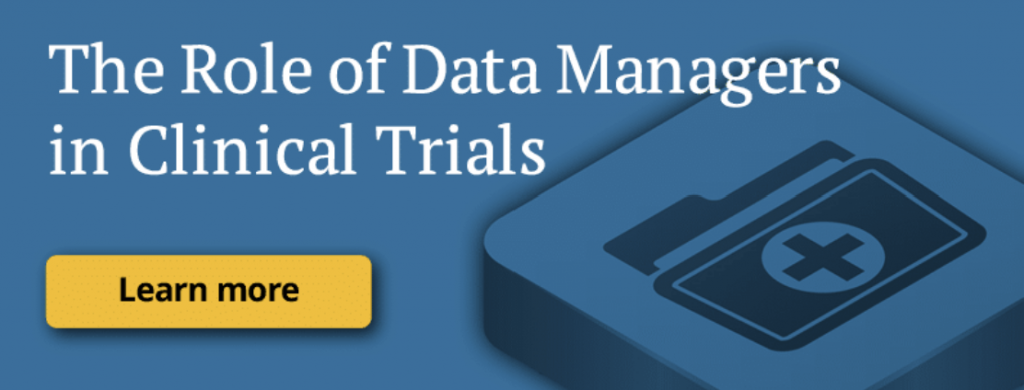Introduction
In the contemporary clinical research environment, the Clinical Data Manager (CDM) plays a crucial and increasingly strategic role. As clinical trials expand in scale, complexity, and regulatory demands, the volume and diversity of data being generated have made its management a central pillar of trial quality and integrity.
Far beyond a purely technical or administrative function, the CDM is the steward of the data that supports ethical compliance, patient safety, and scientific validity.
Recent analyses have emphasized that the CDM must now adapt to decentralized trial models, digital technologies, and advanced analytics, while preserving their fundamental mission: ensuring trustworthy, high-quality data to support sound medical decisions [1][2][3][4].
The CDM as a Gatekeeper of Data Quality and Regulatory Compliance
The first and most fundamental dimension of the Clinical Data Manager (CDM) role is to guarantee that the clinical data collected are reliable, consistent, and compliant with rigorous regulatory frameworks. The data derived from clinical trials are the foundation of scientific conclusions about safety and efficacy, as well as the basis for regulatory submissions and approvals [2][3]. This means the CDM must build and maintain robust data management systems, including the development of Case Report Forms (CRFs), Data Management Plans (DMPs), and edit-check procedures designed to detect errors or inconsistencies at every stage of data capture [1][3].
Moreover, the CDM is responsible for ensuring adherence to guidelines such as Good Clinical Data Management Practices (GCDMP) and standards promoted by CDISC, like SDTM and CDASH [3]. These frameworks define how data should be structured, validated, and documented to guarantee transparency and reproducibility. Failures in data quality or traceability can compromise trial outcomes, expose sponsors to regulatory sanctions, and most seriously, put patient safety at risk [2]. The CDM thus operates as a gatekeeper, preserving the credibility of the entire research process.
Adapting the CDM Role to Technological and Methodological Changes
While data quality remains at the heart of their mission, Clinical Data Managers now face the challenge of adapting to profound changes in how trials are conducted. Anju [4] describes how the traditional CDM role, once defined by manual data review and error correction, is evolving toward a leadership function in the oversight of advanced systems. For example, the rise of decentralized clinical trials (DCTs) has introduced a need for CDMs to manage data coming from remote sites, eConsent platforms, wearable devices, and even direct-to-patient technologies [4].
In this context, the CDM must master a wider range of tools, from electronic Clinical Outcome Assessments (eCOA) to real-time data validation platforms using AI and machine learning [1][2][4]. Their role now includes the supervision of automated processes, evaluation of data pipelines, and the validation of outputs from algorithm-based quality checks [4]. At the same time, CDMs are called to participate in strategic project planning, collaborating with biostatisticians, quality assurance teams, and sponsors to anticipate data issues before they threaten the trial timeline.
This evolution signals a shift: the CDM is no longer just a “data technician” but a key architect of the data ecosystem, with influence over how technologies and processes are integrated into the trial’s design and execution [4].
Competencies and Professionalization of the CDM Role
Given these new challenges, the competencies required for Clinical Data Managers are expanding well beyond technical know-how. The importance of critical thinking, problem-solving, and interpreting data to detect new safety signals was highlighted [1]. CCRPS emphasizes that soft skills are equally vital: CDMs must communicate effectively with a variety of stakeholders, from investigators and site staff to programmers and project managers [2].
Certification programs such as the Certified Clinical Data Manager (CCDM) from the Society for Clinical Data Management have become essential credentials, as they validate a CDM’s knowledge of industry standards and good practices [1][3]. Furthermore, advanced training through specialized master’s programs or micro-courses is growing, reflecting the profession’s continuous evolution [1]. Technical fluency with EDC systems, coding dictionaries like MedDRA and WHO-DDE, and interoperability standards is increasingly expected [3].
It was also noted that CDMs will increasingly serve as strategic partners, impacting trial planning, technology use, and patient engagement strategies [4]. This means developing leadership skills and project management capabilities, as the CDM will be at the table for decisions that shape the trial from protocol design to database lock.
Conclusion
In modern clinical trials, the Clinical Data Manager has become a cornerstone of data integrity, regulatory compliance, and ultimately the scientific and ethical legitimacy of research results. From designing data collection processes to validating their quality, the CDM guarantees that the evidence generated is robust enough to support safe, effective, and ethical conclusions.
As trials evolve toward decentralization, real-time data flows, and AI-supported validation, the CDM’s role is expanding to include system oversight, cross-functional leadership, and strategic input into trial design. Their competencies must keep pace through certifications, continuous education, and the development of both technical and interpersonal skills.
Optimizing and investing in this role is therefore essential: not just to maintain data quality, but to secure the very trustworthiness and impact of clinical research in a fast-changing environment.
References
[1] Clinical Research Roles: How to Become a Clinical Data Manager | Power
[2] Data Management in Clinical Trials | CCRPS




